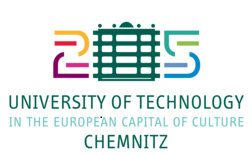Life and Education Built on Trust
DOI:
https://doi.org/10.71514/jssal/2021.38Keywords:
Trust, education philosophy, teacher-student relationship, psychology, pedagogy.Abstract
We cannot have a healthy relationship or career without trust. However, virtually all of us can bring to mind a scenario where our trust has been broken, but if we do not have trust, it will be more challenging to communicate and coordinate with our friends, colleagues or live. Trust is also essential when administering student-teacher relationships. Trust is your most important principle in creating a strong student-teacher relationship. Creating trust can decrease complexities and build life a lot easier for ourselves and students. Distrust can especially be dangerous in an educational setting. So how can teachers ensure distrust has no home in their classrooms? The main aim of this study was to find out how to develop trust come out with results providing insight to the question, especially in education, from a psychological perspective. What are trust and distrust? How does it occur? What factors are associated with it? The findings suggest that the use of trust in teaching and learning may benefit them in many aspects, such as human relationships. The results proved that the occurrence of trust is improved with understanding, and therefore may be a more efficient way to hearten self-confidence and trust acquisition.
Downloads
References
Bryk, A., & Schneider, B. (2002). Trust in schools: A core resource for improvement. Russell Sage Foundation.
Gambetta, D. (1988). Trust: Making and breaking cooperative relations. Oxford: Blackwell.
Hardin, R. (1993). The Street –Level Epistemology of Trust. Politics and Society 21:505-29
Handford, V., & Leithwood, K. (2013). Why teachers trust school leaders. Journal of Educational Administration, 51(2), 194–212
Hardin, R. (2002). Trust and trustworthiness. New York, NY: Russell Sage.
Jones, K. (1996). Trust as an affective attitude. Ethics, 107(1), 4-25.
Kleinig, J. (2018.) Trust and critical thinking, Educational Philosophy and Theory, 50:2, 133-143.
Levin, D. Z., Cross, R., Abrams, L. C., & Lesser, E. L. (2002). Trust and knowledge sharing: A critical combination. IBM Institute for knowledge-based organizations, 19(10), 1-11.
Lewicki, R. J., McAllister, D. J. & Bies, R. J. (1998). Trust and distrust: new relationships and realities. Academy of Management View, 23(3), 438-458.
McKnight, D. H., & Chervany, N. L. (2001). What trust means in e-commerce customer relationships: An interdisciplinary conceptual typology. International journal of electronic commerce, 6(2), 35-59.
Ryan, R. M., & Deci, E. L. (2002). Overview of self-determination theory: An organismic dialectical perspective. Handbook of self-determination research, 2, 3-33.
Siegel, H. (2005). Truth, Thinking, Testimony and Trust: Alvin Goldman on Epistemology and Education, Philosophy and Phenomenological Research, 10.1111/j.1933-1592. 2005.tb00452.x, 71, 2, (345-366), (2007).
Scherzinger, M., & Wettstein, A. (2019). Classroom disruptions, the teacher–student relationship and classroom management from the perspective of teachers, students and external observers: A multimethod approach. Learning Environments Research, 22(1), 101-116.
Tschanen-Moran, M. (2003). Fostering organizational citizenship in schools: Transformational leadership and trust. Studies in leading and organizing schools: A volume in research and theory in educational administration. Greenwich, CT: Information Age Publishing.
Tschannen-Moran, M. (2014). Trust matters: Leadership for successful schools. San Francisco: John Wiley & Sons.
Walker, R. A. (2010). Sociocultural issues in motivation (Vol. 6, pp. 712-717). Amsterdam: Elsevier.
Ye, J. N., Ye, J. H., Wang, C. M., & Hong, J. C. (2021). Development of 5 Cs Educational Value Scale for esport games. International Journal of Technology in Education and Science, 5(3), 362-374. https://doi.org/10.46328/ijtes.215
Downloads
Published
How to Cite
Issue
Section
License
Copyright (c) 2021 Esra Akdogan

This work is licensed under a Creative Commons Attribution-NonCommercial 4.0 International License.
The work is made available under the terms of the Public Offer and the Creative Commons Attribution 4.0 International License (CC BY 4.0). This license allows anyone to reproduce, distribute, and adapt the material in any medium or format, including for commercial purposes, provided that proper credit is given to the creator(s) and the original source.












